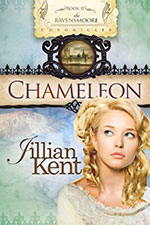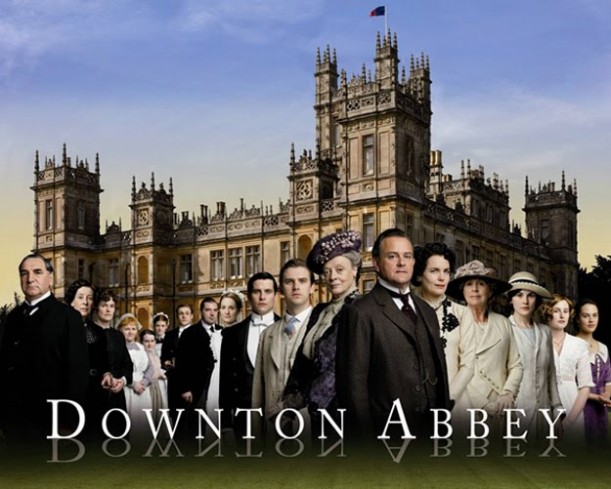Hey! I've moved. You'll be directed to my new blog in 3...2...1...
Exploring the Regency with Guest Blogger: Sara King
Tuesday, December 18, 2012
 |
| Jillian and Sara |
As a history major I love to explore cultures and societies that came before our time. My hope in writing as part of my friend Jillian Kent’s blog is that we can enlighten each other in the history and culture of the Regency Era of Great Britain. My goal is to give you as a fellow reader an insight into aspects of the time period that Jillian may not write about, but aspects we both are passionate about. To begin my first post for Jillian and to everyone one of her friends that read her blog, I wanted to start small and just give an introduction into the Regency Era. As we progress through our time together and become friends my hope is to focus on specific topics for each post whether it be a place, a person, a landmark or a tradition.
As many of you know the Regency Era of British society was a time of cultural expansion and nourishment, one that flourished. It was characterized for its distinctive architecture, literature, fashion and politics. Unfortunately it was also a time of great concern for the middle class due to the rampant over indulgence of the aristocracy and rising poverty levels in the cities. Despite the concerns, the Regency Era was a period of refinement and cultural achievement that would change the social structure of Great Britain for years to come.
 |
| The Prince Regent/Wikipedia site |
As well, Jane Austen first published Pride and Prejudice in 1813.
Today her books are considered classic literature and give modern
readers an insight into a society that was flourishing. Through her we as readers can take a step
back in time and relive the daily life and gossip of Regency Britain.
There have been many amazing discoveries of the Regency Era such as the adaptation of steam printing which increased the demand of books, pamphlets and newspapers. Steam printing made it possible to print over 1,100 sheets and hour compared to the previous count of 200 sheets per hour. This greatly increased the popularity of novels and gossip sheets that spread the rumors of the royal and aristocratic. Koenig's Steam Press was purchased by the Times of London in 1814.
I hope you will join me in discovering the delights of the
Regency Era.
Jill here again. Doesn't that machine remind you of something? I can't put my finger on it but I see two big eyes and robot like head. Maybe something from the movie Transformers?
Jill here again. Doesn't that machine remind you of something? I can't put my finger on it but I see two big eyes and robot like head. Maybe something from the movie Transformers?
The Twin Demons of Perfectionism and Procrastination
Tuesday, December 11, 2012
I'm being stalked by the demons of perfectionism and procrastination. I knew something was wrong when I couldn't quite move forward with my next ideas for writing projects. My mind kept repeating the phrase, "Not good enough."
I found some answers in a number of places this past week and wanted to share them with you in case you're being stalked by similar serpents of Perfectionism and Procrastination.
The first place I was led for help was when I looked up James Scott Bell's weekly Sunday post at the Kill Zone. Ten Ways to Sabotage Your Writing,
I also tuned in to Charles Stanley this week and God answered with the sermon on Solving Problems Through Prayer. I had caught myself trying to solve my problem through my personal abilities. Always a mistake for me. Start with prayer, seek wise counsel, and move forward. I am a person of deep, personal faith and still after all these years I can be duped by The Serpent. The big one. But that's all it takes is recognition and reminder that the villain of all villains is out there. 1 Peter 5:8 warns us: "Be sober, be vigilant; because your adversary the devil, as a roaring lion, walks about, seeking whom he may devour."
For me, the issue of what do next isn't writers block. It's fear of moving forward. Of making a mistake of choosing the wrong direction that will result in some major error. Here's the comment I wrote in response to Jim Bell's post:
And then later in response to Elizabeth Poole's statement is how I start to work through it.
Elizabeth, thanks for the
thoughts on perfectionism. I've convinced myself over the years that I'm
not a perfectionist. I know how dangerous that can be and yet maybe
that's what it really is. I think perfectionism leads to procrastination
and those are double demons for our writing and our daily lives.
Perhaps it's a matter of letting go and enjoying the process rather than
fearing it. This is what I like about these kinds of posts. It gives us
opportunity to work through the hard stuff that we might otherwise
ignore.
Read the comments section too. You'll find a lot of self-discovery, self-awareness, and plain old good advice.
I felt like I should know better. I chose 2nd Timothy 1:7 as my life verse a long time ago. "For God hath not given us the spirit of fear; but of power, and of love, and of a sound mind." This is the reason I write. Somehow I had drifted away from that knowledge and needed to be reminded.
Have you ever been there? What got you back on track?
Book Clubs, Book Talk, Book Signings
Tuesday, December 4, 2012
 |
| Janeen Coyle and Jillian |
I didn't really know what to expect. We met at a Starbucks inside Kroger's in Montgomery, Ohio and what a fun time. Janeen and group were discussing Patricia Cornwell's latest book, The Bone Bed. Some loved it and some not so much. Great discussion. I loved hearing their comments, very enlightning for a writer.
.JPG) |
| What a great bunch of women! |
Later Janeen asked me questions about my books and I filled everyone in on a bit of the writing life and my stories. I felt like one of the gang with this book club. Everyone was very relaxed and interested and asked lots of good questions.
 |
| It's always fun to sign a book! |
I gave a couple of books away to introduce to new readers to the Regency. I encouraged others to read my first chapters on my website and the online stores that allow you to read a sample. Below are a few more pictures of that evening with my new book club pals.
|
| |||||||||||||
WHAT'S THE LAST BOOK YOU READ THAT YOU REALLY ENJOYED?
Then on Saturday, December 1st I kicked off the month signing books with other author friends at Barnes and Noble in Westcheseter, Ohio.
 |
| Shelley Shepard Gray and Jillian |
 |
| Donna McMeans, Me, and Gail |
 |
| Jillian and Sara |
Sara King is incredibly gifted with three degrees: Biology, History, and Anthropology. She works at B&N whenever she gets the chance and is also employed within the health care community of Cincinnati. I hope to make her a regular guest blogger.
 |
| Me, Gwen Williams, and Donna |
Definition of Yearn: Downton Abbey
Monday, November 26, 2012
Watched the sneak peaks of Downton Abbey last night. Makes the word "yearn" come to mind.
YEARN
1: to long persistently, wistfully, or sadly <yearns to make a difference>
2: to feel tenderness or compassion
Am I the last one to discover that there is a Downton Abbey App.?
Love these pictures! Looking forward to the new season and now I hear we have season four to look forward to as well.
What can writer Julian Fellowes teach us? A lot obviously. Perhaps the most important thing being that it's all about the characters and their relationships and how we as viewers want to know more about them. And the man has worked hard. You can read more here.
Masterpiece Classic was enthralling Sunday evening as we revisited Downton Abbey and got a couple looks at what is to come. I watched along with a few more folks, I'm sure. If only we could have dismissed all the advertisements.
One of the things that Downton Abbey has is a historical advisor Alastair Bruce.Getting into Character has it's challenges How I would love to have my own historical advisor. If you're writing historical fiction of any kind, I'm sure you can appreciate this.
Am I reading this correctly? I can order it now from the UK? Will you buy it or wait till January?
Grateful Give Away
Tuesday, November 20, 2012
I was blessed to be invited to a book club meeting of the River Hills Christian Church in Loveland, Ohio on October 29th this year. And even prior to the meeting this fantastic group of women dropped by to visit and support me at Books by the Banks in September. And they were there among others and even a few gals from my Thursday night Bible study.
You can read the first chapters of all my books here.
 Chameleon is the story of Lady Victoria Grayson, fondly referred to as Snoop by her physician brother, Lord Ravensmoore. Lady Victoria journeys to London for the first time in her adult life after battling a chronic childhood illness that kept her home bound for years. She is embroiled in a hornet's nest of intrigue when her brother is called upon to treat a Member of Parliament after a brutal attack.
Chameleon is the story of Lady Victoria Grayson, fondly referred to as Snoop by her physician brother, Lord Ravensmoore. Lady Victoria journeys to London for the first time in her adult life after battling a chronic childhood illness that kept her home bound for years. She is embroiled in a hornet's nest of intrigue when her brother is called upon to treat a Member of Parliament after a brutal attack.
HAPPY THANKSGIVING!
You can read the first chapters of all my books here.
 Chameleon is the story of Lady Victoria Grayson, fondly referred to as Snoop by her physician brother, Lord Ravensmoore. Lady Victoria journeys to London for the first time in her adult life after battling a chronic childhood illness that kept her home bound for years. She is embroiled in a hornet's nest of intrigue when her brother is called upon to treat a Member of Parliament after a brutal attack.
Chameleon is the story of Lady Victoria Grayson, fondly referred to as Snoop by her physician brother, Lord Ravensmoore. Lady Victoria journeys to London for the first time in her adult life after battling a chronic childhood illness that kept her home bound for years. She is embroiled in a hornet's nest of intrigue when her brother is called upon to treat a Member of Parliament after a brutal attack.
The Prince Regent has called Jonathon Denning, Lord Witt, from his home in the country to investigate Ravensmoore's activities. The Regent isn't so sure he wants one of his lords working a trade and expects to put an end to what he considers eccentric behavior. Jaded by his profession as a spy, Witt understands that some people are not what they pretend to be. When he meets Victoria his cynical nature is challenged along with his doubts about God. Together they must confront their pasts in order to solve a mystery that could devastate their future.
HAPPY THANKSGIVING!
Escape into Medical History: Smallpox
Tuesday, November 13, 2012
 |
| Edward Jenner (1749–1823).
Photo courtesy of the National Library of Medicine. Discovered here. |
You wouldn’t want to have the need for surgery because chances are that you wouldn’t get it (they rarely performed surgical operations) and you’d die, or you would get it and you’d die, or if you were that sick you’d just want to be left alone to die. Medicine is one of those things that I wouldn’t want to give up if I could escape into Regency England (one of my favorite eras) for a year or so.
Did you know that Edward Jenner discovered the vaccine for smallpox in late 18th century England? I doubt many high school students know about smallpox today unless they watch movies on bioterrorism, etc. Isn’t it scary that a disease that was virtually wiped out by 1977 could be resurrected for horrifying purposes?
Jenner used the pus and infectious matter of a dairymaid’s cowpox to inoculate a small boy in 1796. Do you want to know what that looked like? Probably not but I’ll tell you. He scraped inside nasty looking wounds on Sarah Nelm’s (dairymaid’s) hand and arm, gathered the infection, created two small incisions in the boy’s (James Phipps) arm and spread the pus into the incisions. You can read more here about the method of variolation here.
From Wikipedia, Jenner's Theory:
The initial source of infection was a disease of horses, called "the grease", which was transferred to cows by farm workers, transformed, and then manifested as cowpox.More here. For more on the great and terrible scourge go here.
Did you know the history of smallpox inoculation? Did any of this surprise you? Brings a whole new meaning to the saying, "A pox upon you!" Of course in that day if they didn't mean smallpox they probably meant syphilis. That's another post.
 From an etching by James Gillray (1757-1815) 1802 caricature of Jenner vaccinating patients who feared it would make them sprout cowlike appendages. From Wikipedia.
From an etching by James Gillray (1757-1815) 1802 caricature of Jenner vaccinating patients who feared it would make them sprout cowlike appendages. From Wikipedia.
Mystery of the Heart Cover Art
Tuesday, November 6, 2012
.jpg) |
| Releasing January 8th 2013 |
Here's the new cover for the third and final book in The Ravensmoore Chronicles. Hope you like it.
ABOUT THE BOOK
Lady Mercy Grayson has secretly been studying medicine in Edinburgh, Scotland. She has dressed as a man to pursue the same passion her big brother Devlin, Lord Ravensmoore, pursued outside the acceptance of society. Her secret has been discovered. Now she’s running away from Scotland and her dreams. Will she be able to accomplish what she feels is God’s calling, or will the parameters of society and those who want to use her secret to accomplish their own selfish ends determine the course of her future?
Vincent Lyons, Lord Eden, is an adventurer coming home to London to deliver the mysterious Holy Lance to the prince regent who wants to see if the legends are true surrounding this relic that is said to possess both the power of healing and destruction. His life is catapulted in another direction when he meets Mercy who is pursuing a different kind of adventure that will cause him to question everything he believes.
Both will be forced to examine their personal motives when members of a voudon tribe, the Regent, and the London Legend Seekers Club search to possess the ancient relic for their own purposes.
ENDORSEMENTS
Jillian Kent's, Mystery Of The Heart, is a riveting tale of intrigue, courage, romance and faith. I was hooked from the first page, when the heroine washes up upon the shores of Regency England half-drowned, only to be taken captive by the mysterious Lord Eden. This is a story to be savored and shared. ~ Serena Miller, author of, The Measure of Katie Calloway, 2012 Rita Award for Best Inspirational Romance.
A winning escape for the romantic imagination, Mystery of the Heart, will keep readers on the edge of their seats! A sigh-worthy hero and an intelligent make this Regency novel a pure pleasure for fans of the genre as well as anyone seeking a love story that's brightened by a healthy dose of adventure. ~Rosslyn Elliott, Award-winning author of, Fairer Than Morning and Sweeter Than Birdsong
Mystery of the Heart is a deliciously credible and moving account of a nineteenth-century woman pursuing her dream to become a doctor. From the elegant world of English royalty to the frightening venues of an insane asylum, author Jillian Kent presents a meticulously researched novel filled with suspense, mystery, and romance. I couldn’t put this one down! ~Sue Harrison, Author of international best seller Mother Earth Father Sky
Jillian Kent writes a sweeping romantic intrigue, brilliant with well-drawn characters and meticulous research of Regency England. ~ Linda Windsor, Author of The Brides of Alba historical series: Healer, Thief, and Rebel
Jillian Kent writes a sweeping romantic intrigue, brilliant with well-drawn characters and meticulous research of Regency England. ~ Linda Windsor, Author of The Brides of Alba historical series: Healer, Thief, and Rebel
Accepting The Way We Work
Tuesday, October 30, 2012
My full time job is as a counselor for nursing students. I frequently
read the Chronicle of Higher Education and had to smile when I came
across this article, Accepting The Way You Work. It was so reminiscent of what we've all heard before. I wrote another blog post recently on the same subject The Organic Writer. Whether we consider ourselves outliners, organics, or somewhere in the middle, we each approach our writing in the way that works best for us.
I'm using National Novel Writing Month that begins November 1st to explore my ability to write without editing. That's hard for me to do, but I'm going to experiment on a larger scale.
Then I hope to utilize SCRIVENER which I bought last November and never utilized because I was on deadline and knew there would be a learning curve. So I've picked out some photos for my cork board for inspiration in the month of November. You can find some of your own here and here.
So are you participating in the NaNoWriMo Adventure?
I'm using National Novel Writing Month that begins November 1st to explore my ability to write without editing. That's hard for me to do, but I'm going to experiment on a larger scale.
Then I hope to utilize SCRIVENER which I bought last November and never utilized because I was on deadline and knew there would be a learning curve. So I've picked out some photos for my cork board for inspiration in the month of November. You can find some of your own here and here.
So are you participating in the NaNoWriMo Adventure?
Cincinnati's Book Blast!
Tuesday, October 23, 2012
 |
| Suzanne, Terri, Joni, Terry, Me, Dee |
Unfortunately with the schedule I didn't get to sit in on the panel with fellow Books and Such agency mate, Ann Gabhart, but we eventually caught up with each other and of course I forgot to take a picture. :)
Book club members from River Hills Christian Church in Loveland, Ohio drop by to visit at Books by the Banks. Left to Right: Suzanne Mohr, Terri Weeks, Joni Baker, Terry Kirkland, Me, and Dee Bailey.
Isn't it Romantic? Romance Fiction Panel
 |
| Jillian and Jamie |
- Macy Beckett, Sultry with a Twist,
- Jamie Carie, The Guardian Duke: A Forgotten Castles Novel
- Jillian Kent, Chameleon
- Donna MacMeans, The Casanova Code

Jamie Carie was the other inspy author on this panel and friends Donna McMeans and Macy Beckett were romance authors from the general market. The second panel was titled, “Faith and Fiction: Inspirational and Christian Fiction.”
- J.S. Bailey, The Land Beyond the Portal
- Mary Ellis, An Amish Family Reunion
- Ann Gabhart, Words Spoken True
- Dionna Latimer-Hearn, Unexpected Places.
 |
| Moderator Amy, Macy, Donna, Me, and Jamie |
1) How has the e-book revolution effected us?
2) How do we get our writing done?
3) What do we think makes a strong hero and heroine?
4) Why did we choose to write in the genres we are currently writing in?
Amy asked many questions the audience seemed to enjoy hearing the answers to and then opened it up for questions from those in attendance. Lots of fun!
Duffy Brown, long time friend and fellow member of Romance Writers of America and Ohio Valley RWA was signing her first cozy mystery, Iced Chiffon, which is sure to be a winner.
 |
| Duffy Brown and Jillian at the end of a long day. |
If you would like to know more about who was in attendance this year: Fiction authors 2012 You can also explore all the other authors and genres who were there and get a taste for what a huge book festival is like in Cincinnati. What book festivals do you attend in your area of the country?
GALLEYS AND THE FASCINATING WORLD OF PRINT
Tuesday, October 16, 2012
 |
| Printing press from 1811, Wikipedia |
By the time a book is in galley form it's gone through a number of edits by the author and then on to the substantive edit, which in my case is done by freelance editors. I've had a different editor for each of my three novels. I love getting the galley for several reasons: it means the book is close to finished, I still have a chance to make changes (and you'd be surprised what I find that needs changed at the last minute), and I enjoy seeing the design used on the pages or the
Miriam-Webster defines it as:
a : an oblong tray to hold especially a single column of set type
b : a proof of typeset matter especially in a single column before being made into pages
 |
| Movable type on a composing stick, Wikipedia |
Wikipedia states that, "Galley proofs are so named because in the days of hand-set type,
the printer would set the page into galleys, the metal trays into which
type was laid and tightened into place. These would be used to print a
limited number of copies for editing mark-up. The printer would then receive the edits, re-arrange the type, and print the final copy." Here's their article about Galleys.
I found a wonderful article on The History of Printing that you are sure to find fascinating. We own much to Johann Gutenberg (1400? - 1468). Within this article I was surprised to see the name John Baskerville (1706 - 1775). Could this be where Doyle got the name for his famous novel, The Hound of the Baskervilles? See what research leads us to? There is a long list of links that will lead you to just about anything and everything you would want to know regarding the history of printing. Enjoy. Have you learned something about galleys or the printing world while working in the book publishing industry or elsewhere?
From 1812 to 2012 with the U.S. Brig Niagara
Tuesday, October 9, 2012
Debra Marvin is back this week with incredible information and pics on the naval aspects of the War of 1812. If you missed her first post on the war a couple weeks ago you can find it here. So come escape with us into the world of naval warfare against Britain. Be on guard though, I have a feeling that Deb may have a pop quiz later about naval stuff. Take it away, Deb!
Hi Jillian! On a beautiful September day in 2012, I had the pleasure of a dream-come-true day sail aboard the U.S. Brig Niagara. Just thinking of it now makes me smile and my heart go pitter-patter. Isn’t she beautiful?
 |
| photo borrowed from Niagara Canadian Military Heritage Society to promote the U.S. Brig Niagara |
At the start of the War of 1812, few ships capable of warfare plied the waters of the Great Lakes, so shipbuilding on these lakes became a competition won by the Americans. While they failed repeatedly in land battles, they knew winning the war along the Great Lakes would demand naval superiority—naval superiority shut down food and armament supply. For this post, I’m sticking with what happened on Lake Erie. The British had two warships on Erie when war broke out. The Americans had none.
 American Isaac Chauncey was given carte blanche to build and buy a naval presence on Erie. By the spring of 1813, two brigs were underway at Erie, PA, the Lawrence and the Niagara. The ships didn’t have to last long and were built with shortcut methods including green wood. In March of 1813 an upstart named Oliver Perry arrived at Erie after marching overland with 100 experienced sailors. The battle-tested and highly commended Master Commandant Jesse Elliot was put under the command of Perry who’d never commanded a ship in his life. Needless to say, but I’ll say it; Elliot and Perry had a strained relationship.
American Isaac Chauncey was given carte blanche to build and buy a naval presence on Erie. By the spring of 1813, two brigs were underway at Erie, PA, the Lawrence and the Niagara. The ships didn’t have to last long and were built with shortcut methods including green wood. In March of 1813 an upstart named Oliver Perry arrived at Erie after marching overland with 100 experienced sailors. The battle-tested and highly commended Master Commandant Jesse Elliot was put under the command of Perry who’d never commanded a ship in his life. Needless to say, but I’ll say it; Elliot and Perry had a strained relationship.
After a shaky start getting over the sand bars off Erie and Presque Isle, the Brigs Lawrence (the flagship--meaning the ship carrying the overall commander, in this case Perry) and Niagara headed west across the ‘inland sea’ known as Lake Erie to engage the enemy near the British port of Put-In-Bay, Ontario.
Aboard “my” day on the U.S Brig Niagara, Captain Wesley W. Heerssen, Jr. used a map to show ship movement during the famous battle. Perry, commanding the US Lawrence, ordered the fleet to fall in line. For some reason, the Niagara, with Elliot commanding fell back. After a lengthy, rousing battle, the Lawrence was out of commission. Perry, not ready to quit, had his flag brought down, (a flag proclaiming the last words of Captain James Lawrence, Don’t Give up the Ship) and ordered what he had left for a crew to lower a small boat. Perry (a descendant of William ‘Braveheart’ Wallace) was rowed to the Niagara, still uninvolved and fresh. Elliot opted out and took over another smaller ship, while Perry set the Niagara straight into the British line. Unable to shoot ‘forward’, warships had to present broadsides. By sailing directly between two British ships, the Niagara was able to inflict damage to both, with little damage to herself. Two other large British ships plowed into each other and became entangled.
 The battle was won shortly after and Commander Perry became the new darling of the nation and the U.S. Navy because the U.S now ruled the Great Lakes. Contentions with Elliot lived on long after as well. The Niagara did not end her service there and was involved throughout the end of the war and after as a transport ship.
The battle was won shortly after and Commander Perry became the new darling of the nation and the U.S. Navy because the U.S now ruled the Great Lakes. Contentions with Elliot lived on long after as well. The Niagara did not end her service there and was involved throughout the end of the war and after as a transport ship.
By 1820, the American naval station at Presque Isle off of Erie PA was closed and the Niagara was one of four ships scuttled (intentionally sunk). In 1836, George Miles raised the Lawrence and Niagara as merchant vessels. It wasn’t going to work. They weren’t big enough to hold cargo and were in poor condition. Back to the bottom of a cold lake for consideration another day. That happened in 1913 when the Niagara was raised for the 100th anniversary of the Battle of Lake Erie. It was towed around the lake and later put on show as a museum ship in Erie.
The state of PA bought Niagara in 1931 to completely restore but work was put off until 1963. A relatively sound ship was recreated using original wood and the ‘heart’ of the ship. But in 1980 it was completely revamped –taken apart and put back together to create a safety-first sailing vessel to be used as a training ship and floating classroom.
In this video, crew turn a topsail. Can you believe the amount of rope involved?
Some naval stuff:
A BRIG is a two-masted, square-rigged ship
A FRIGATE is a ship with not just one deck of guns but guns on the raised forecastle and quarterdeck.
A SCHOONER is a ship with two or more masts and fore and aft sales. (Not square sails)
A SHIP OF THE LINE is large with two full gun decks, plus guns on the two smaller raised decks.
A SLOOP is a single masted ship with fore and aft sails.
Next time you watch Pirates of the Caribbean, Master and Commander, or Horatio Hornblower, you’ll thank me for this. To follow my obsession with the War of 1812, visit Inkwell Inspirations blog. Thanks Jillian!
For more on the Brig Niagara, The War of 1812 see these links: Thank you!
http://www.eriemaritimemuseum.org/maritime_museum/History/battle_of_lake_erie/index.htm
 Debra E. Marvin tries not to run too far from real life but the imagination born out of being an only child has a powerful draw. Besides, the voices in her head tend to agree with all the sensible things she says. Debra likes to write, weed and wander and is blessed to have the best family and friends in the world. She has decided she needs to live closer to her grandchildren. She’s thankful each day that God is in control, that He chooses to bless us despite ourselves and that He has a sense of humor. Her work has finaled in the TARA, Great Expectations, Heart of the Rockies, Maggie, Rattler and most recently, the Daphne DuMaurier for the second time. Not too bad considering she’s trying a mashup of gospel and . . . gothic.
Debra E. Marvin tries not to run too far from real life but the imagination born out of being an only child has a powerful draw. Besides, the voices in her head tend to agree with all the sensible things she says. Debra likes to write, weed and wander and is blessed to have the best family and friends in the world. She has decided she needs to live closer to her grandchildren. She’s thankful each day that God is in control, that He chooses to bless us despite ourselves and that He has a sense of humor. Her work has finaled in the TARA, Great Expectations, Heart of the Rockies, Maggie, Rattler and most recently, the Daphne DuMaurier for the second time. Not too bad considering she’s trying a mashup of gospel and . . . gothic.
 Debra E. Marvin tries not to run too far from real life but the imagination born out of being an only child has a powerful draw. Besides, the voices in her head tend to agree with all the sensible things she says. Debra likes to write, weed and wander and is blessed to have the best family and friends in the world. She has decided she needs to live closer to her grandchildren. She’s thankful each day that God is in control, that He chooses to bless us despite ourselves and that He has a sense of humor. Her work has finaled in the TARA, Great Expectations, Heart of the Rockies, Maggie, Rattler and most recently, the Daphne DuMaurier for the second time. Not too bad considering she’s trying a mashup of gospel and . . . gothic.
Debra E. Marvin tries not to run too far from real life but the imagination born out of being an only child has a powerful draw. Besides, the voices in her head tend to agree with all the sensible things she says. Debra likes to write, weed and wander and is blessed to have the best family and friends in the world. She has decided she needs to live closer to her grandchildren. She’s thankful each day that God is in control, that He chooses to bless us despite ourselves and that He has a sense of humor. Her work has finaled in the TARA, Great Expectations, Heart of the Rockies, Maggie, Rattler and most recently, the Daphne DuMaurier for the second time. Not too bad considering she’s trying a mashup of gospel and . . . gothic.
Dark Tales Brimming with Light
www.inkwellinspirations.blogspot.com/
www.facebook.com/debra.e.marvin
www.debraemarvin.com and...twittering @DebraEMarvin
www.facebook.com/debra.e.marvin
www.debraemarvin.com and...twittering @DebraEMarvin
Blogging, Is It Worth It? Does It Make A Difference?
Tuesday, October 2, 2012
 |
| Gibbs is blogging? |
I've noticed that even Michael Hyatt is changing his thoughts about blogging after he posted How I Unplugged and Lived to Tell About It? A couple weeks after this post he then blogged about Why I Will Be Posting Less This makes perfect sense to me. But Michael Hyatt is well known and has a massive amount of information in his archives. If you haven't scanned these posts to see what might be of interest I encourage you to do so.
Since being published in 2011 the responsibilities of completing a series, working the day job, finding time to spend with my husband and family have become increasing complicated. How to manage everything there is to manage is a continuing question I'm searching to answer. And I know I'm not the only one. I try to ask myself the question I frequently ask the college students that I counsel, "How important is it?"
 |
| That's not possible. Is it? |
So what are we going to do about it? What am I going to do about it? I've already gone from three times a week to twice a week to currently once a week. Hmmm. Blogging, has it morphed into something else? Has it grown obsolete? Is Twitter and Facebook where it's happening now? My agent also recently posted the question Is Facebook Here To Stay?
C.S. Harris commented on blogging as well. See her post at Asocial. I can relate to this. I really want to blog when I have something to say that I really want to say and not feel pressured into doing it because it's what we authors are supposed to do to draw readers in. For the most part I think we frequently draw other writers in and that's okay because writers also read but they really aren't our target audience, right? And I don't want to hire an assistant to blog for me.
Group blogging may be the best option but it depends. Some group blogs work and some not so much. My two favorites have to be The Kill Zone and Seekerville. Do you have favorite group blogs you think are very effective and fun too?
 |
| I don't blog! |
I want to write wonderfully entertaining novels that people will read and look forward to reading. Frequent blogging may interfere with my ability to do that well. So I'm going to be doing some experimenting. If you follow me you're going to notice some changes and it may be things that happen spontaneously or not. :)
James Scott Bell in his post entitled, Social Media Marketing Made Easy said:
Don't Hurt Your Writing Time or Your Life
If you find your social media presence detracting from your writing time and your ability to produce quality words, cut back. If you're on Facebook more than you're with your family, check your priorities. This stuff isn't as important as either of those two things.
What do you think and feel about blogging? About social media in general? Is Twitter, Facebook, etc. enough? Is a great website enough regarding DISCOVERABILITY? I found this link via JSB's blog. Digital Book World I've always heard that word of mouth is the best way to sell our books after we've written a great book. I wonder if that's still true? What's your take on blogging? How far are you willing to go?
Guest Blog: The War of 1812
Tuesday, September 25, 2012
Every once in awhile you meet someone who loves the things you love. Like history for instance. I write during England's Regency era, officially 1811-1820. I am not an expert on the war from either side of the Pond. I know a little bit about both. If you ever watched a movie titled, The Madness of King George, you'll find out just how frustrated George III was about losing the colonies. In 1812, his son who was declared the Prince Regent (because the king was insane) ruled over Great Britain and Ireland.
Please welcome Debra Marvin who will take you on a tour of The War of 1812 and will return in two weeks on October 9th with a discussion on naval vessels which is sure to be fascinating.
Please welcome Debra Marvin who will take you on a tour of The War of 1812 and will return in two weeks on October 9th with a discussion on naval vessels which is sure to be fascinating.
Thank you for inviting me into your drawing room, Jillian!
Depending on what decade…or century your readers hale from, I’m obsessing about a little event called The War of 1812, or the Anglo American War. Right now, History buffs in Canada and the U.S are commemorating that period in history.
I feel its odd to say ‘celebrate’ when we talk of war, don’t you?
In 1812, President James Madison and many Washington insiders were for war. Britain was ignoring our sovereignty as a nation by telling us who we could and could not trade with. Other reasons for Madison’s declaration of war included: impressment of American sailors and privateers into service for His Majesty’s Navy, Britain’s arming of the Native population, or First Peoples, in the northwest (Ohio valley and western Great Lakes) and …
not so altruistic, the desire by some to gain Canada’s vast reserves of natural resources.
“WarHawks” were ready to take over the continent and there was little to stop them. Or so they thought. Wouldn’t Canadians want to be out from under the monarchy too? And what better timing? Britain was very busy with Napoleon on the Continent.
This year, I’ve been researching sea and land battles, politics of the time, uniforms, army and naval strategy, and life set against the Regency/Federalist period on both sides of the conflict.
I’ve visited three reenactments this year around the Great Lakes and Niagara frontier and just last week took a day sail on the US Brig Niagara. I’m digging in deep for my next series, and loving all the amazing opportunities.
While many Americans know little of this period, or care even less, Canada celebrates the War of 1812 as a turning point in their national identity. War with Britain for the United States became war with our good neighbor Canada.
Canadian citizens, as subjects of King George, had to take a stand. With so few British soldiers available, it was local militia, Native allies, and various groups banding together by ancestry that capably supplemented the British Regulars. Standing together against the invading U.S. forces bonded these wide spread people together on their great wild land.
Similarly, the eventual successes of the United States’ small army and even smaller navy against the greatest army and navy in the world created a national pride in a divided nation. At one point, strong Federalist sentiment in New England threatened a secession because they couldn’t abide or support the war efforts. Enter Francis Scott Key and his poem The Star-Spangled Banner, and a few American victories. Just in time to save the union!
What do you think of these bumper stickers: “We won the War of 1812” and there’s a U.S version and a Canadian version, sold next to each other on the shelf! I guess the jury is still out on that.
By 1815 The British had already stopped their practice of impressing seaman but it was the Treaty of Ghent that officially ended the war. Too bad it took months before the fighting stopped. Nothing really changed – no gains or losses other than the human toll.
I hope you enjoy my photos and (warning) I’m happy to chat about the War of 1812. I post about it on my group blog Inkwell Inspirations as the War of 1812 Groupie, and my facebook and twitter accounts are thick with history. I’d love to hear from you.
 Debra E. Marvin tries not to run too far from real life but the imagination born out of being an only child has a powerful draw. Besides, the voices in her head tend to agree with all the sensible things she says. Debra likes to write, weed and wander and is blessed to have the best family and friends in the world. She has decided she needs to live closer to her grandchildren. She’s thankful each day that God is in control, that He chooses to bless us despite ourselves and that He has a sense of humor. Her work has finaled in the TARA, Great Expectations, Heart of the Rockies, Maggie, Rattler and most recently, the Daphne DuMaurier for the second time. Not too bad considering she’s trying a mashup of gospel and . . . gothic.
Debra E. Marvin tries not to run too far from real life but the imagination born out of being an only child has a powerful draw. Besides, the voices in her head tend to agree with all the sensible things she says. Debra likes to write, weed and wander and is blessed to have the best family and friends in the world. She has decided she needs to live closer to her grandchildren. She’s thankful each day that God is in control, that He chooses to bless us despite ourselves and that He has a sense of humor. Her work has finaled in the TARA, Great Expectations, Heart of the Rockies, Maggie, Rattler and most recently, the Daphne DuMaurier for the second time. Not too bad considering she’s trying a mashup of gospel and . . . gothic.
 Debra E. Marvin tries not to run too far from real life but the imagination born out of being an only child has a powerful draw. Besides, the voices in her head tend to agree with all the sensible things she says. Debra likes to write, weed and wander and is blessed to have the best family and friends in the world. She has decided she needs to live closer to her grandchildren. She’s thankful each day that God is in control, that He chooses to bless us despite ourselves and that He has a sense of humor. Her work has finaled in the TARA, Great Expectations, Heart of the Rockies, Maggie, Rattler and most recently, the Daphne DuMaurier for the second time. Not too bad considering she’s trying a mashup of gospel and . . . gothic.
Debra E. Marvin tries not to run too far from real life but the imagination born out of being an only child has a powerful draw. Besides, the voices in her head tend to agree with all the sensible things she says. Debra likes to write, weed and wander and is blessed to have the best family and friends in the world. She has decided she needs to live closer to her grandchildren. She’s thankful each day that God is in control, that He chooses to bless us despite ourselves and that He has a sense of humor. Her work has finaled in the TARA, Great Expectations, Heart of the Rockies, Maggie, Rattler and most recently, the Daphne DuMaurier for the second time. Not too bad considering she’s trying a mashup of gospel and . . . gothic.
Subscribe to:
Comments (Atom)































What if? is filled with all kind of ridiculous horrors of my writing demise that may be somewhat related to number one on your list, Jim. But it's different. It's not unhappiness, it kind of feels like Indiana Jones in The Last Crusade where he has to get through the obstacle course to get to the Holy Grail and save his father. One wrong step and that's all she wrote so to speak. :)
Any one ever feel like that? I think it's because I don't know what I want to write next and afraid of somehow choosing the wrong path. Don't know if any of this makes sense, but that's my current struggle which could easily turn into self-sabotage and I've got to snap out of it, which probably means I need to write. Maybe for awhile it doesn't matter what it is.